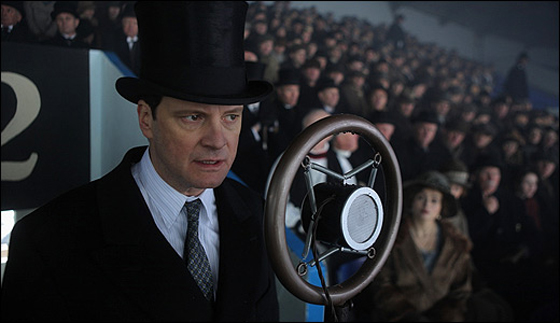This is my first year not to vote for either the Oscars or the Emmys simply because I did not pay dues this year. In order to vote, I had wearied of seeing the Hollywood contenders, for the shows I wished to see were fewer and fewer these past years.However, this year there were at least two fine films: The King’s Speech and Winter Bones. One was from England and the latter, a small independent American film. Where is Hollywood? Making blockbusters, of course.
Yet I want to speak on why The King’s Speech was a predictable winner this year. Of course, it is a well-structured screenplay with a fine cast and director, this goes without saying. There are some other points which may interest writers though.
1) Like Seabiscuit (novel & later Oscar-nominated film), Laura Hillenbrand infused her story with the conflict in her own life, i.e., her challenge of living with chronic fatigue syndrome. All three of her characters had to overcome great obstacles – and the horse, too. Similarly, The King’s Speech, written first as a play by an unknown David Seidler, was infused with his lifelong struggle as a stutterer. This gave the character emotional power. So the moral is dare to be personal. If not, the details of your own life, then make your story emotionally autobiographical.
2) The well-structured story set in WW II England had a myriad of plotlines as the backstory such as Hitler, WWII, abdication of the King and a new King reluctantly taking the crown, etc., yet the dramatic story was singularly focused about a man who would be king lacking self-confidence whose stuttering is the main symptom.
3) The conflict and dramatic action is singularly focused between two characters, the speech therapist and the soon to be King of England. As Aristotle knew, this singular focus of theme and time and place creates great drama.
4) The main character, splendidly played by Oscar winner Colin Firth, was written with a wide transformational arc. That is, he began as a shy, terrified man who was transformed by the relationship with his speech therapist/friend into a confident and strong monarch.
5) A protagonist with a tragic flaw or imperfection is one everyone can identify with. So the moral is dare to be personal, write about what you feel strongly about, write a three-dimensional character-driven focused story with a clear thematic thru-line.
Catherine Ann Jones www.wayofstory.com














